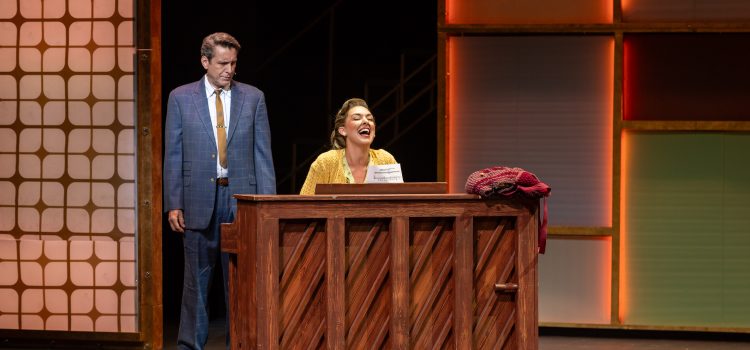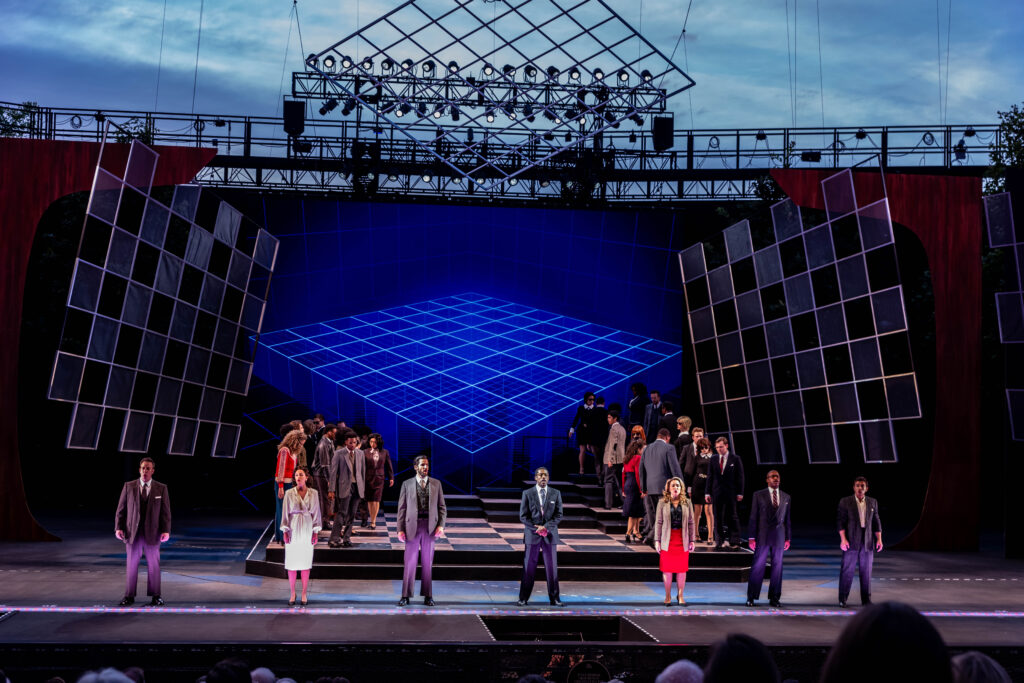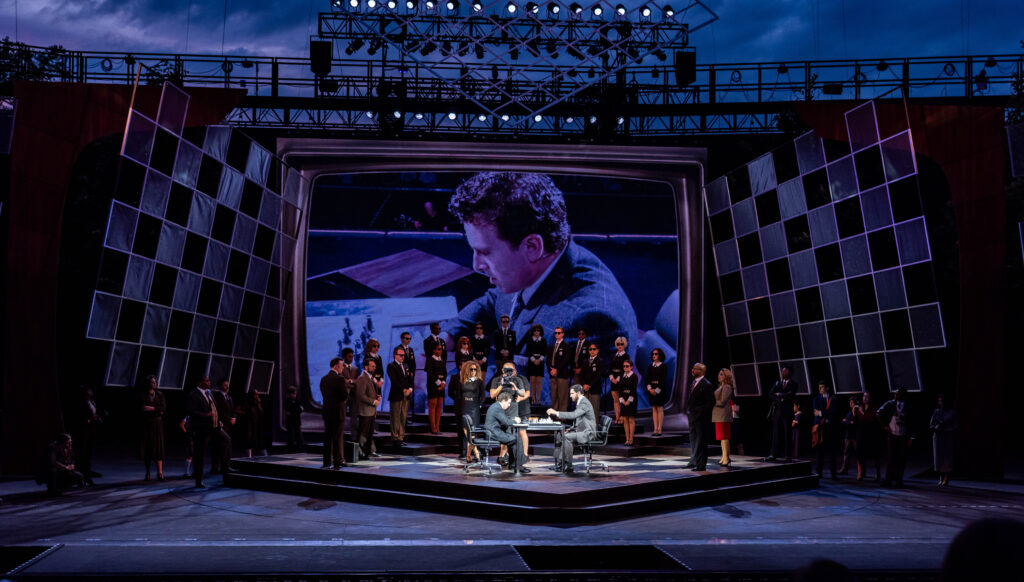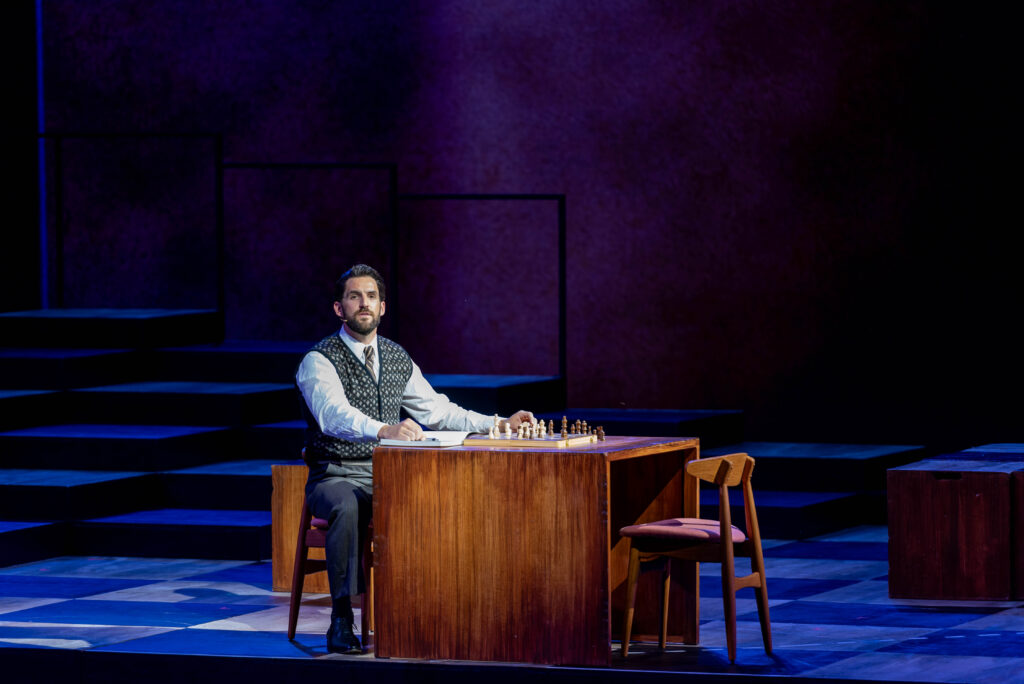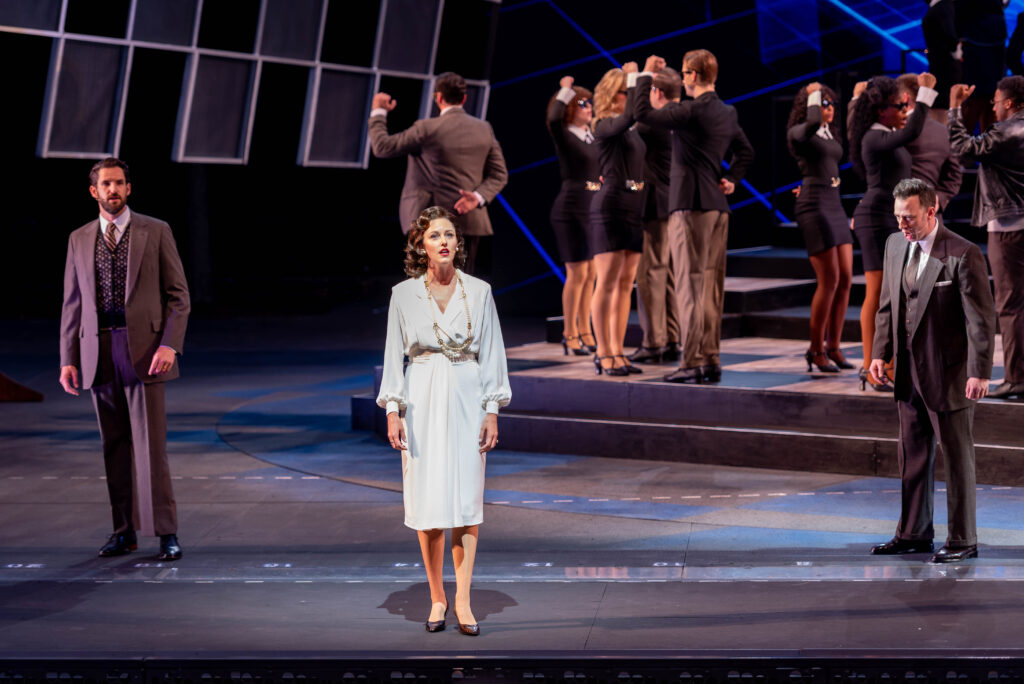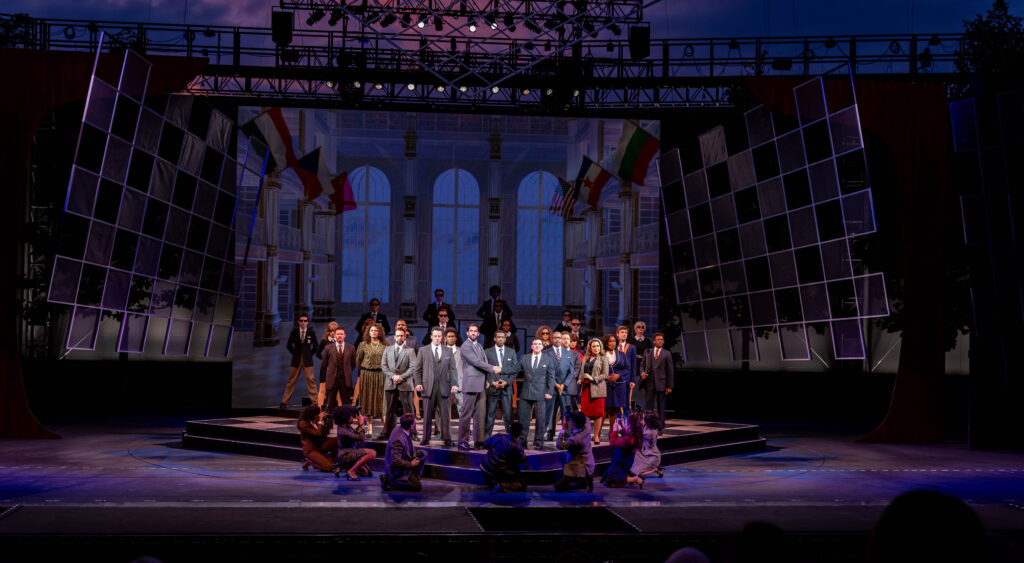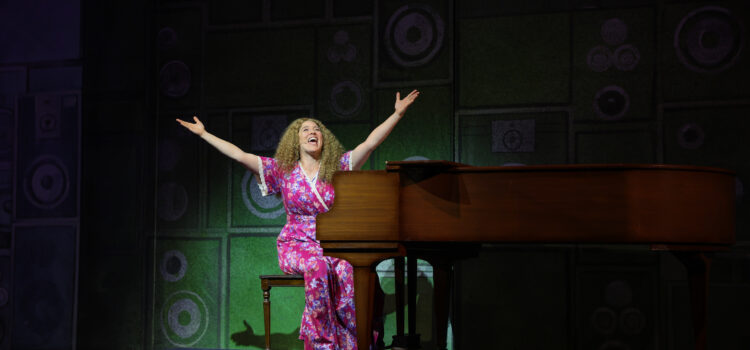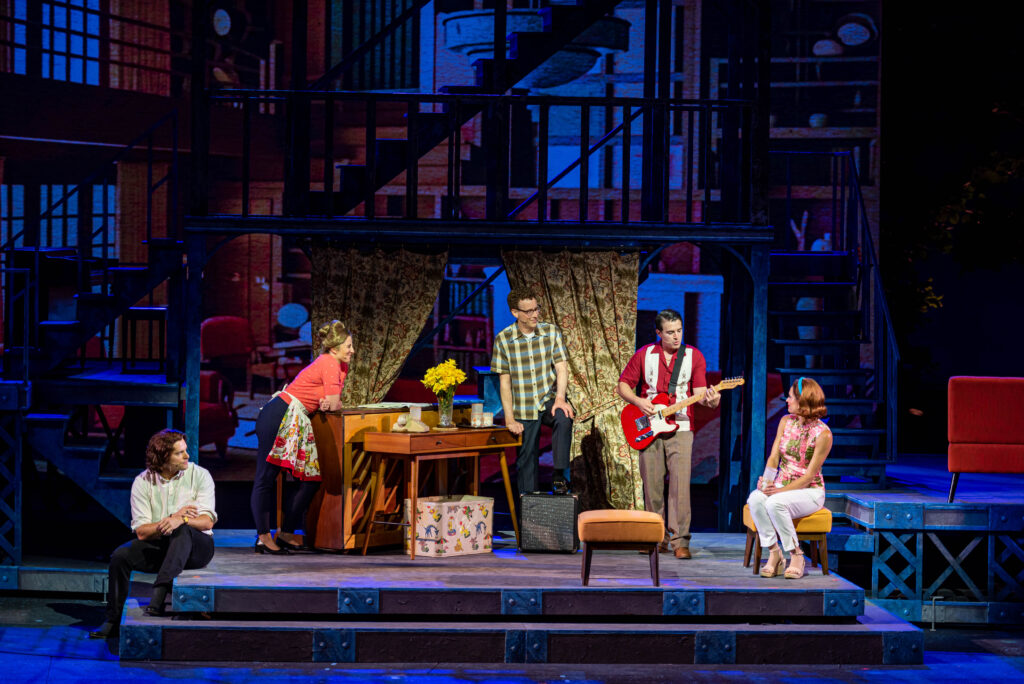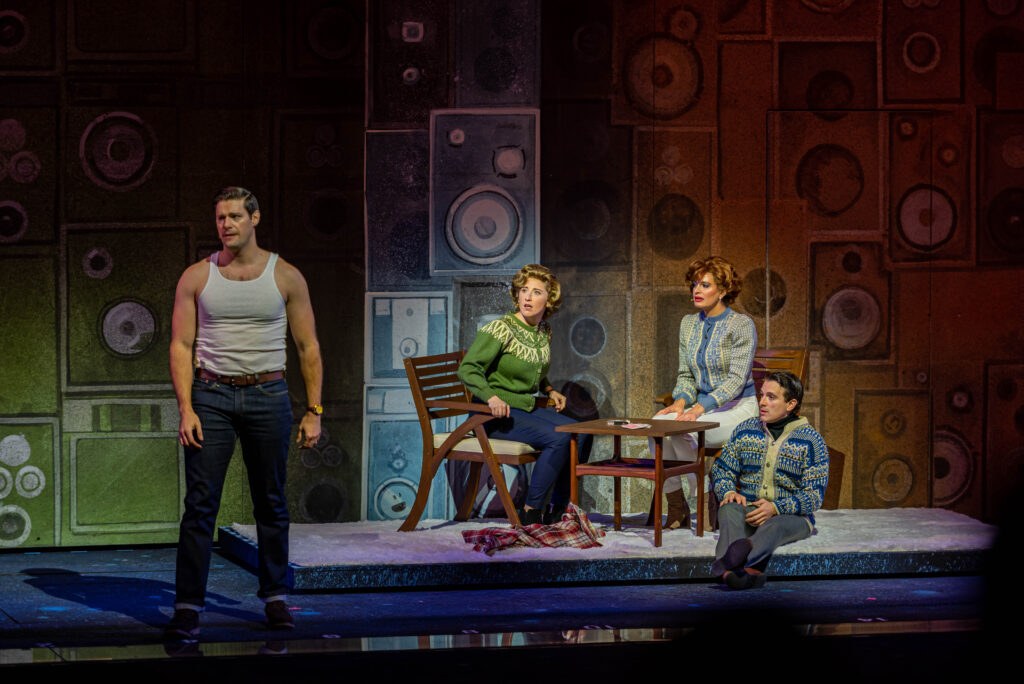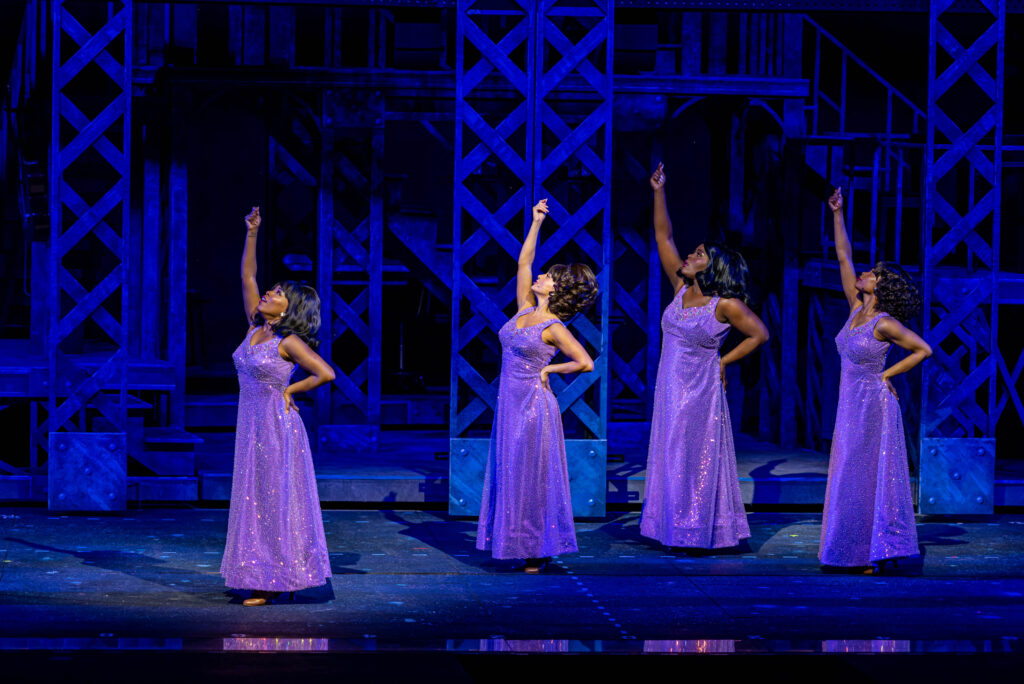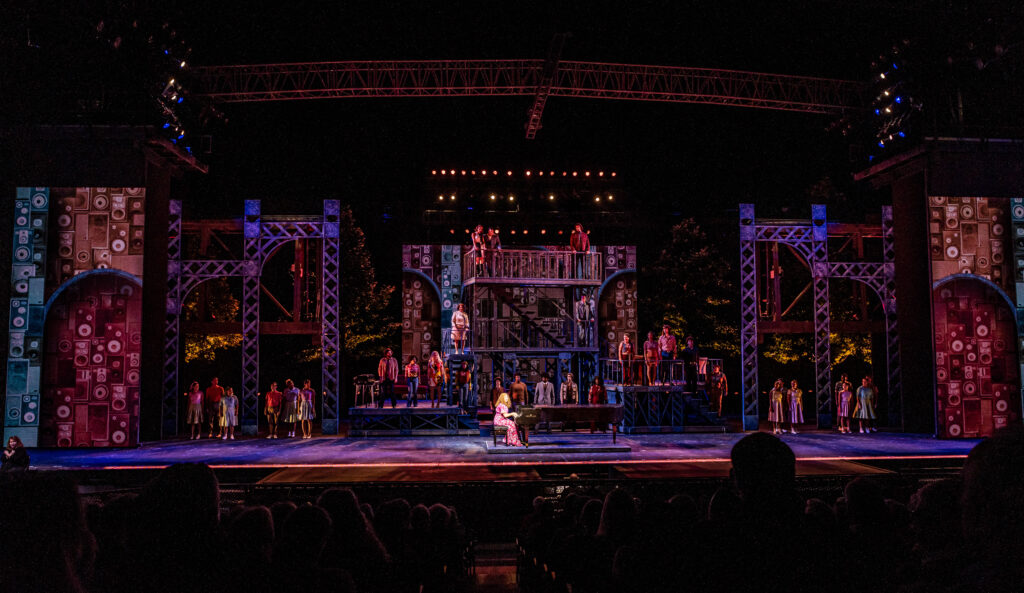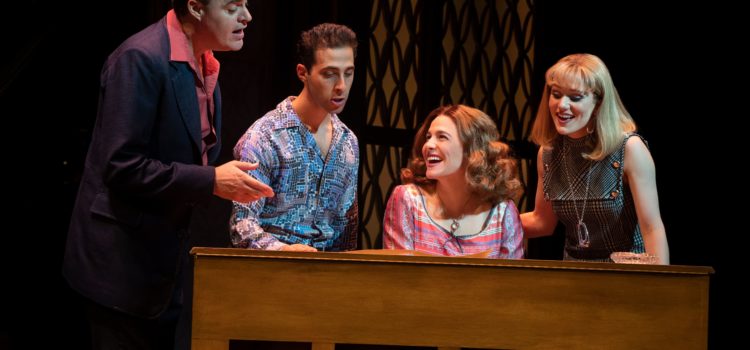By Lynn Venhaus
How legendary singer-songwriter Carole King found her voice is chronicled in the crowd-pleasing “Beautiful: The Carole King Musical,” a remarkable life story that hits all the right notes in an exuberant debut at Stages St. Louis.
The smartly constructed show is the soundtrack of a generation, and King’s influential journey parallels the evolution of women in the 1960s and 1970s.
Bursting with catchy pop songs, King’s fascinating rise to stardom is as much about the beginnings of rock ‘n roll – all those tunes that had a good beat and we could dance to them – as well as the transformative power of music.
Entrancing in the title role, Brianna Kothari Barnes believably transforms from an insecure, talented teen into a strong independent woman, making Carole easy to love and empathize with through every change and heartbreak.
The charming, affable Barnes was matched in zest by the other principals and ebullient ensemble. Nobody misses a beat.
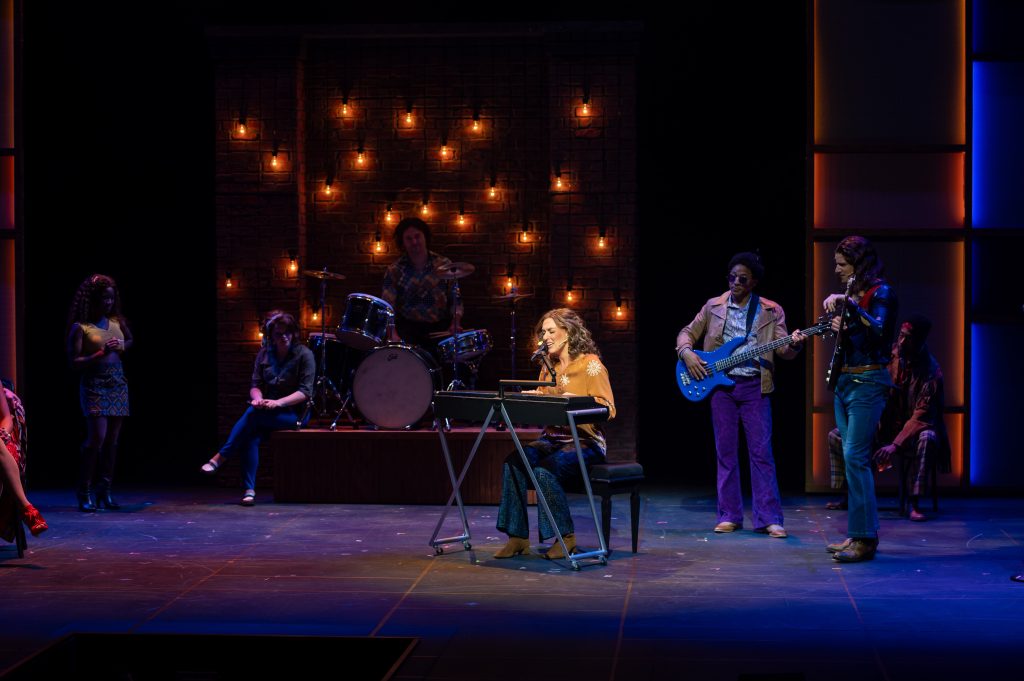
Carole grew up in Brooklyn and then fought her way into the record business as a teenager. She begins as part of the pop hit machine at the Brill Building, located at Broadway and 49th St. in New York City.
Hired by producer Don Kirshner (a droll Jeff Cummings), she meets her first husband Gerry Goffin (Sean McGee) at Queens College, and they make beautiful music together – he writes the lyrics, and she composes the melodies, from 1959 to 1969. Soon, the whole world would sing their songs.
The hits keep coming when they start a friendly rivalry with the songwriting duo Barry Mann (David Socolar) and Cynthia Weil (Kailey Boyle) and that not only enlivens the script but ups the game. The foursome’s good-natured competitiveness produced standards for the girl groups and teen idols that defined the rock era.
(Fun fact: The Brill building was home to Burt Bacharach-Hal David, Mike Lieber-Jerry Stoller, Neil Diamond, and Jeff Barry-Ellie Greenwich.)
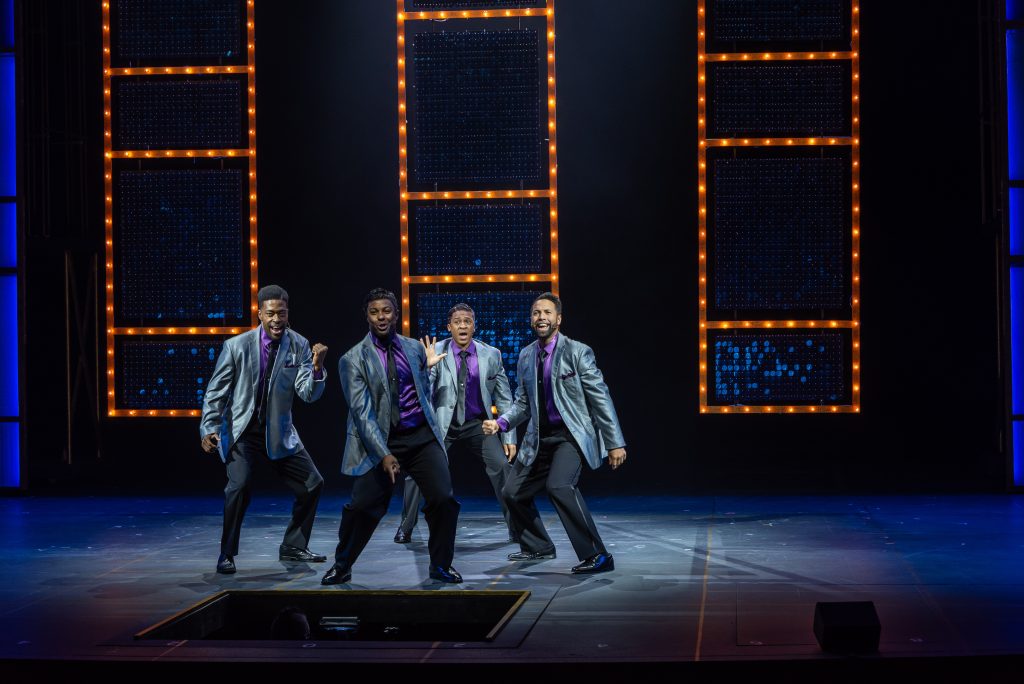
Douglas McGrath’s witty and warm book conveys the emotional connections that music makes throughout the show, in many different ways. The two pairs have an effortless interaction – until the dramatic action gets tense because the biz overtakes Gerry’s psyche – but they all share an easy chemistry.
Veteran Amy Loui astutely captures Carole’s well-meaning mom Genie Klein, quick with the advice and the quips. As Kirshner, Cummings is both a caring friend and a sharp-as-a-tack boss with a terrific ear for what sells.
The ensemble is equally robust in singing the non-stop parade of peppy hits – Tatiana Bahoque, Maya Talia Bishop, Ian Coulter-Buford, Hugh Entrekin, Tiffany Frances, Jayna Glynn, Connor Kelly-Wright, Trey McCoy, McKay Marshall, Cara Palombo, Devin Price, Sydney Quildon, Alexandrea Reynolds, Justin Reynolds, Bryce Valle, and RJ Woessner.
As the chart-toppers The Drifters, The Shirelles, Little Eva and others, they perform their iconic songs. “Up on the Roof,” “One Fine Day,” “The Locomotion,” and “Will You Still Love Me Tomorrow” among them.
These songs clearly struck a chord. One of my favorite moments is when Hugh Entrekin and RJ Woessner, as The Righteous Brothers, deliver a soulful “You’ve Lost That Loving Feeling.”
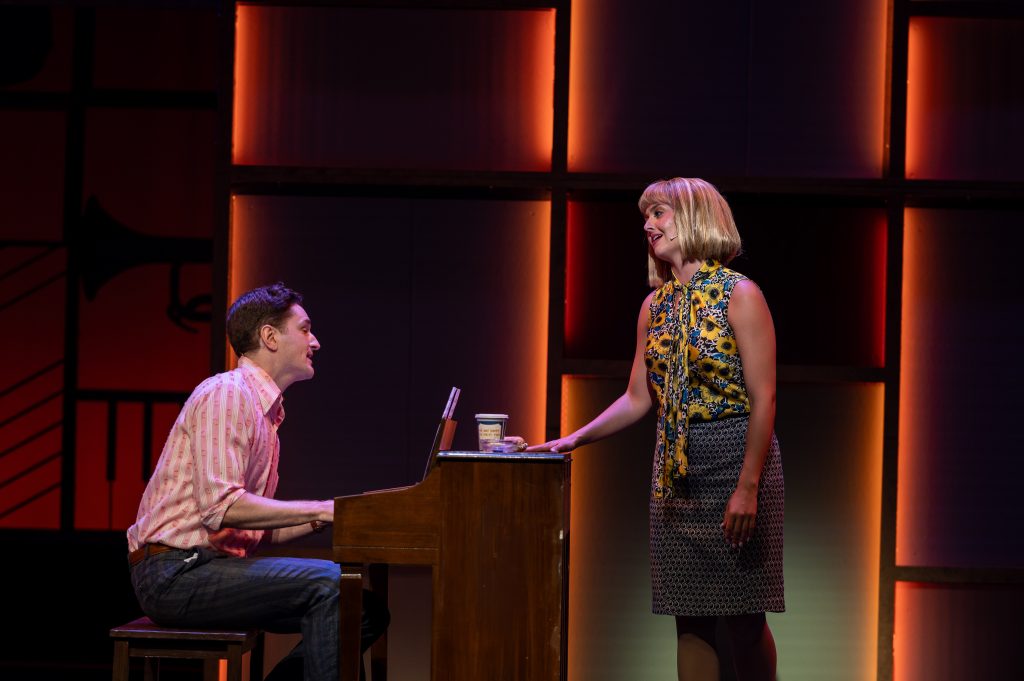
So many music memories abound — Carole’s emergence as a potent solo artist when she tries out ‘It’s Too Late” at the Bitter End signals a turning point.
Her landmark 1971 album, “Tapestry,” which sold over 25 million copies, won Grammys for Best Record, Song and Album of the Year. It is still one of the bestselling albums of all-time, and the longest Billboard run by a female artist.
My generation knows every single word — still (My 1972 high school yearbook was titled “Tapestry”).
For us Boomers, this show is a true lovefest, a sentimental flashback. But other generations can enjoy it as well – as a blast from the past pop music history lesson and as a portrait of a resilient woman who finally believed in herself.
In a male-dominated business, her integrity and kindness stood out, and she not only survived but thrived in changing times.
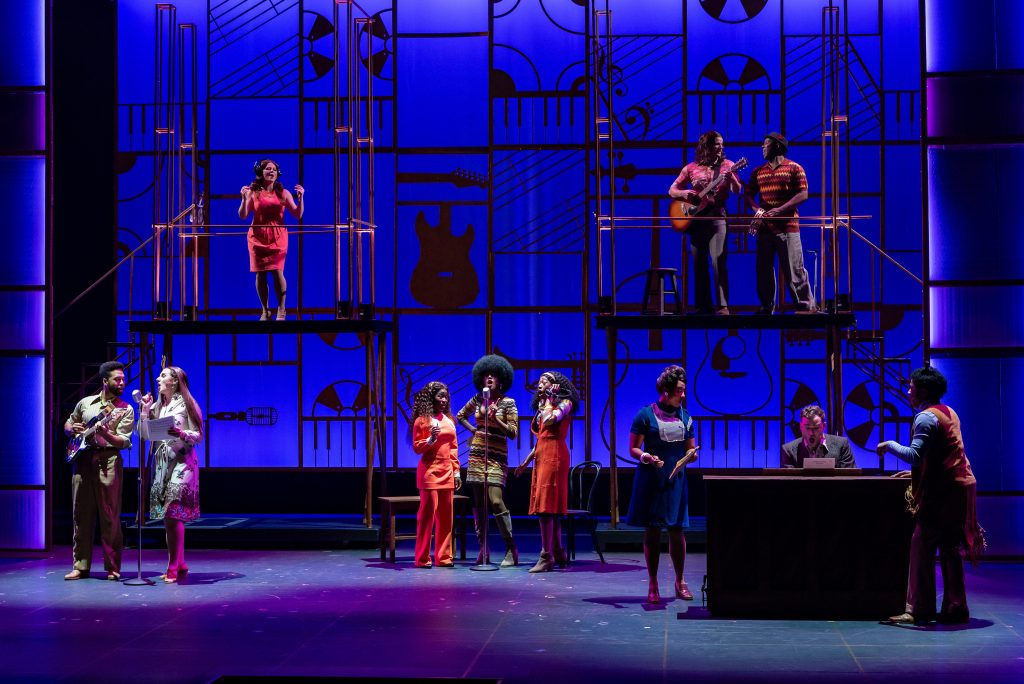
Popular on Broadway, “Beautiful” played for 2,418 performances from Jan 12, 2014, to Oct 27, 2019, nominated for seven Tony Awards and won two – Jessie Mueller as Carole and sound design.
(The gifted and troubled Goffin died in 2014 at age 75, and did see “Beautiful” on Broadway before he passed. He and Carole each had three other spouses in their lives.)
Two national tours have played at the Fabulous Fox in St. Louis, in 2016 and 2019. The Muny produced it as one of four premieres for its 105th season in 2023. This production is the fifth time for me, since Broadway in 2014, and I believe it’s on par with that show – for its intimacy and its heartfelt desire to tell this fascinating story.
Jennifer Werner, who directed and choreographed the musical, brings out the fun and the joy in the music-making. For lack of a better word, she made the production ‘sing’ – and the scenes flow into each other smoothly. She made us feel what the times were like.
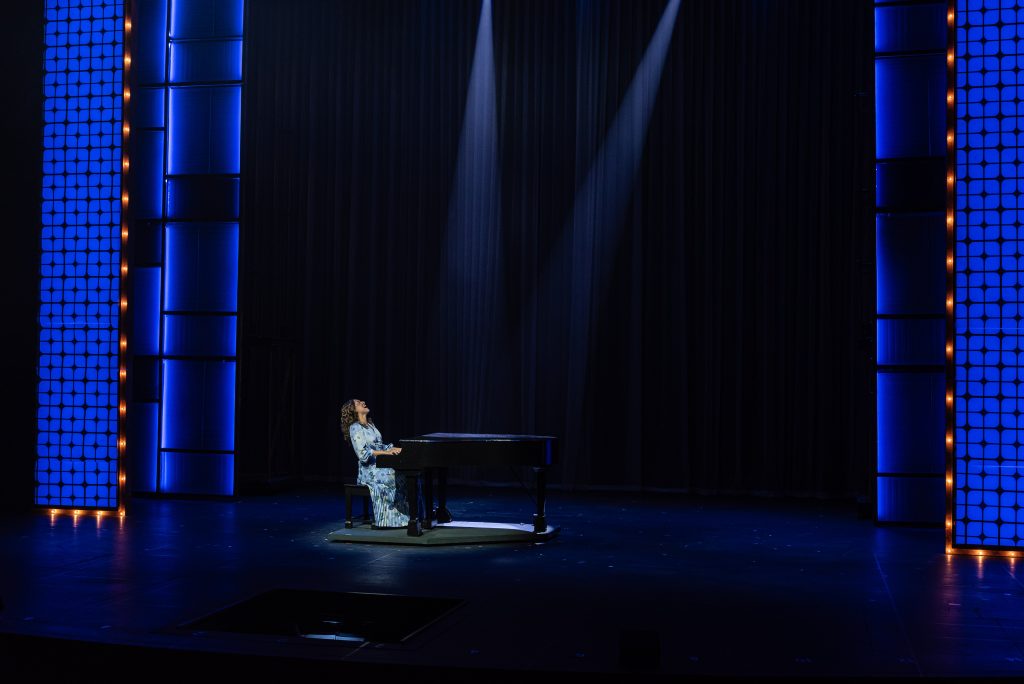
Music Director David Nehls conducted with gusto, and to play 29 songs from the great American songbook with aplomb was a remarkable feat for the musicians. Besides Nehls on keyboard, so was Mark Maher, with Alerica Anderson on bass, Travis Mattison on guitar, Abby Steiling on violin (select performances Fiona Brickey), Lea Gerdes and JD Tolman on reeds, Tom Vincent on trombone, Andy Tichenor on trumpet, Jonathan Taylor on drums and percussion. Randon Lane was associate music director.
Collaborating to set the scene, Peter Barbieri’s grid-like scenic design superbly captures the different eras, as did costume designer Johanna Pan, with costume design coordinator Cat Lovejoy and wig and hair designer Paige Stewart. all precise in the vintage looks.
Sean M. Savoie’s lighting design added just the right ambiance for every scene, day or night, while sound designer Breanna Fais was pitch-perfect in execution.
“Beautiful: The Carole King Musical” is the best kind of jukebox musical – one that unites us, tells us a story rich in sincerity and humor, and has us leaving the theater with a smile on our faces and a song in our hearts.
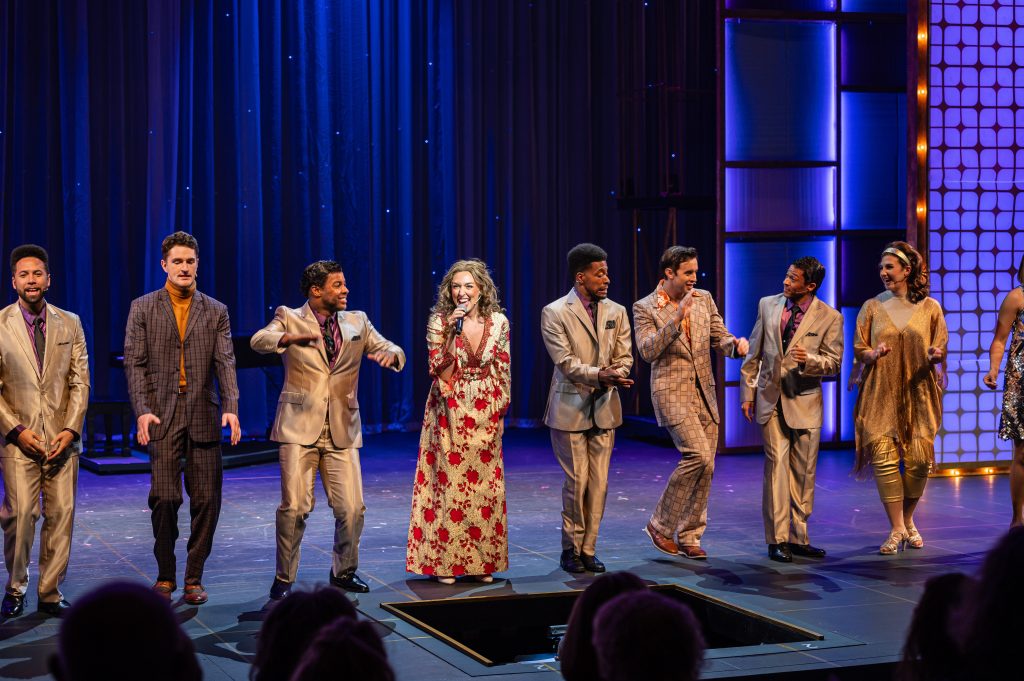
Stages St. Louis presents “Beautiful: The Carole King Musical” from Sept. 19 to Oct. 19 at the Kirkwood Performing Arts Center’s Ross Family For more information, visit For tickets, visit www.stagesstllouis.org
.
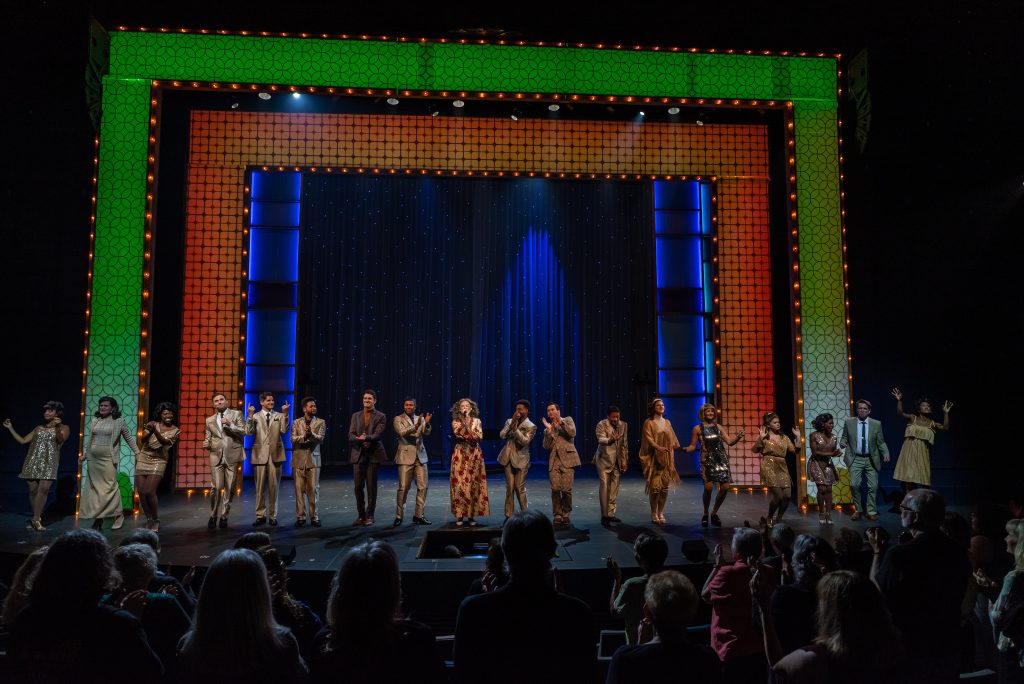

Lynn (Zipfel) Venhaus has had a continuous byline in St. Louis metro region publications since 1978. She writes features and news for Belleville News-Democrat and contributes to St. Louis magazine and other publications.
She is a Rotten Tomatoes-approved film critic, currently reviews films for Webster-Kirkwood Times and KTRS Radio, covers entertainment for PopLifeSTL.com and co-hosts podcast PopLifeSTL.com…Presents.
She is a member of Critics Choice Association, where she serves on the women’s and marketing committees; Alliance of Women Film Journalists; and on the board of the St. Louis Film Critics Association. She is a founding and board member of the St. Louis Theater Circle.
She is retired from teaching journalism/media as an adjunct college instructor.

